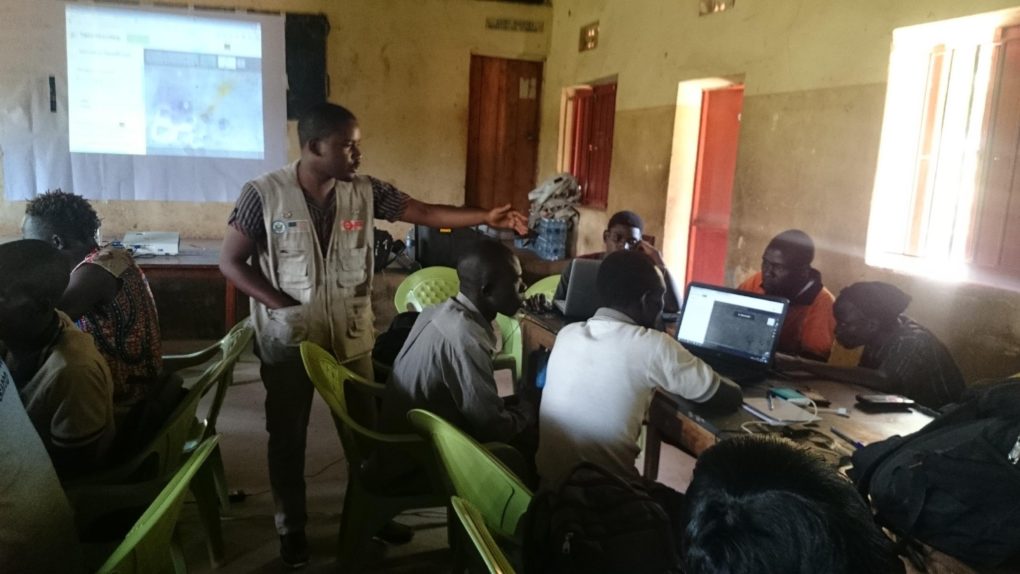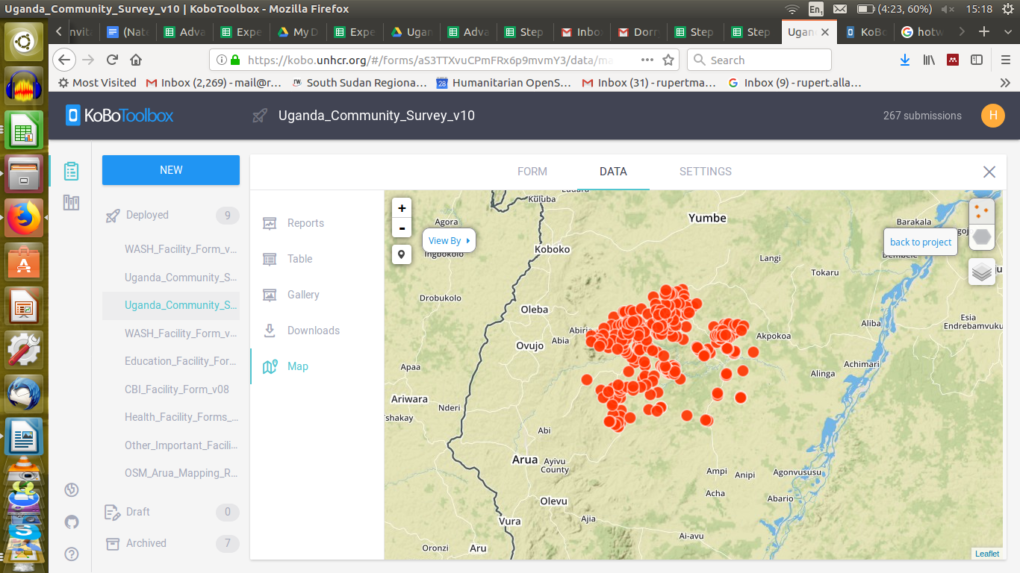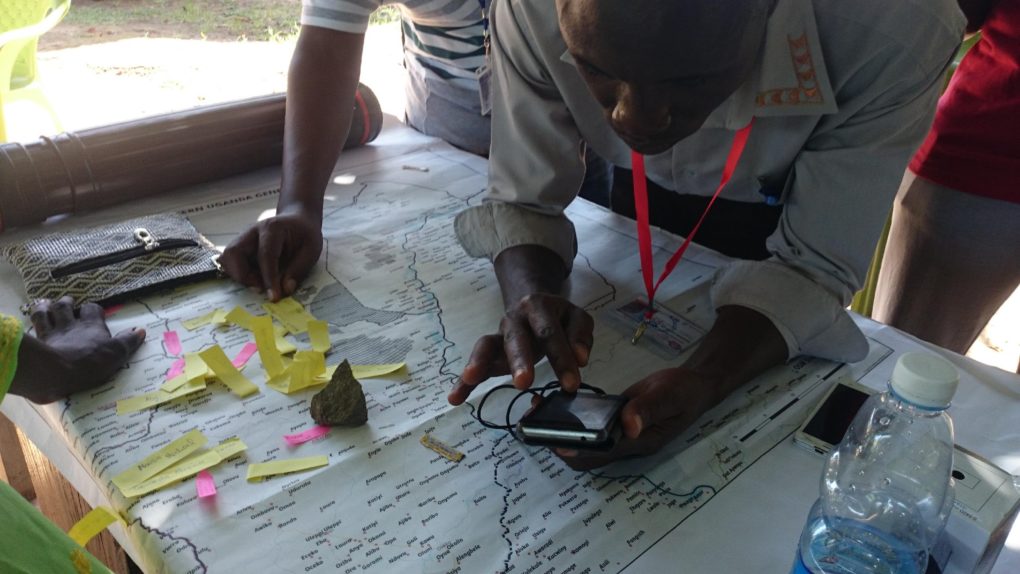Mapping Crisis: Participation, Datafication and Humanitarianism in the Age of Digital Mapping (University of London/Chicago Press, Human Rights Consortium) Editor: Doug Specht.
Who knew that a book about personal data ethics, track and trace, government handling of life-saving disaster mapping data would become so topical?

My contribution is the final chapter, ‘Modalities of United Statelessness’: about bottom-up, ‘hyper-local’, community-owned motorcycle-mapping data in Uganda’s ongoing refugee crisis. Local Ugandans and international refugees together ‘wiki-mapped’ disease outbreak and social protection data, in the Congolese/South Sudanese refugee settlement areas.
As members of the Ugandan Humanitarian OpenStreetMap Team, they adopted OpenStreetMap usernames. Then, using their own android phones, created a trailblazing resource of life-saving health, food, and water map data, now broadly used by UN, NGO, and Government emergency and development coordinators.
Humanitarians being part of ‘the solution’, rather than part of ‘the problem’.

I argue this valuable ‘Data Preparedness’ to be a solution to many pandemic issues, and this view seems borne out by Uganda’s excellent COVID-19 record to date.
Chapter Abstract Here: Modalities of United Statelessness
….
I’d love if it got way beyond just academic community, as scholarship on the politics of representation and contemporary humanitarian ethics is scant, but really really important.
I liked this bit of the blurb, finding it particularly topical for the current times:
‘….Some have argued that representation has diminished in humanitarian crises as people are increasingly reduced to data points. In turn, this data has become ever more difficult to analyse without vast computing power, leading to a dependency on the old colonial powers to refine the data collected from people in crisis, before selling it back to them.’
Book also available through Open Access.
